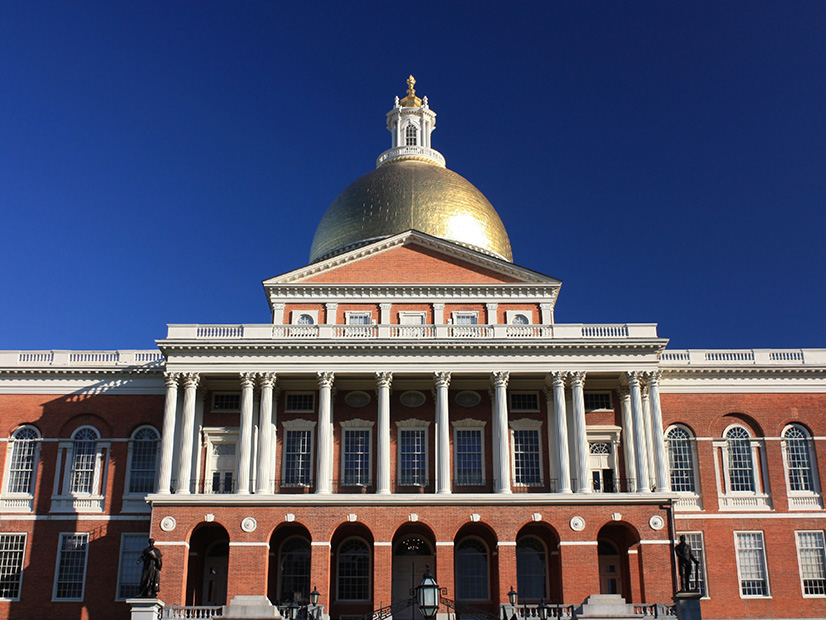
Massachusetts legislators on Thursday passed a compromise bill that aims to boost clean energy and electric vehicles and give cities and towns new options for greening buildings.
The bill (H.5060) comes after more than two months of negotiation between the House of Representatives and Senate, which had presented differing visions for the climate bill. (See Mass. Legislators Try to Hash out Next Climate Bill).
“Massachusetts needs to open up huge new sources of green electric power if it’s to stay on course for reducing emissions,” said bill sponsors Rep. Jeff Roy (D) and Sen. Mike Barrett (D) in a joint statement. “Today’s compromise aims to ramp up clean power, especially offshore wind but also solar, storage and networked geothermal, and run it through cars, trucks, buses and buildings — the biggest sources of emissions in the state.”
The bill has wide support in the state, including from groups such as the Green Energy Consumers Alliance and Environmental League of Massachusetts.
Here are highlights of the bill, which now goes to the governor for his consideration.
OSW and Clean Energy
The bill would create a new Clean Energy Investment Fund within the Massachusetts Clean Energy Center to support clean energy technology, research, workforce development and infrastructure.
It would also build a new Massachusetts OSW industry investment program and an accompanying trust fund to boost wind employment and economic development.
Helping the OSW industry was central to the House version of the bill and is a key priority of House Speaker Ron Mariano (D).
Electric Vehicles
Key to the Senate version of the bill is a focus on transportation, including changes to the state’s EV rebate program, which made it into the final agreement on the bill.
It would raise the cap on the purchase price of EVs eligible for the rebate to $55,000 from $50,000.
It would also add a $1,500 additional rebate for low-income EV buyers and expand eligibility to used EVs, if they were not sold in the prior two years.
The Baker administration might disagree with the new purchase price cap increase, since the administration previously said it wants to lower the cap to keep the program financially sustainable. (See Changes Coming to Mass. EV Rebate Program, Energy Commissioner Says). But the Department of Energy Resources will likely support the expansion to used vehicles and low-income provisions, which it has supported.
The bill would maintain a higher subsidy for the purchase of medium- and heavy-duty electric vehicles, with a minimum $4,500 rebate. And it would add new reporting and outreach requirements for the state to try to continue expanding the use of the program.
Other EV provisions include a mandate for the state to build charging infrastructure at service plazas and some transit stops and for distribution companies to propose off-peak and time-of-use EV charging rates.
Buildings
The bill addresses an ongoing debate in Massachusetts over whether cities and towns should be allowed to mandate zero-emission buildings.
It authorizes a “demonstration project” for up to 10 cities or towns to adopt zoning ordinances or bylaws that prohibit new building construction projects that are not fossil-fuel free. To participate, a municipality would have to comply with a state law that requires 10% of housing to be affordable.
The state government would then collect data from the demonstration project about the impacts on emissions, building costs, operating costs and other criteria.
Local leaders have been clamoring for the state to allow them to require fossil-fuel free buildings, but the Baker administration has held off from doing so even as it moves to update state energy building code rules. (See Mass. Net-zero Building Code Proposal Faces Barrage of Criticism).


